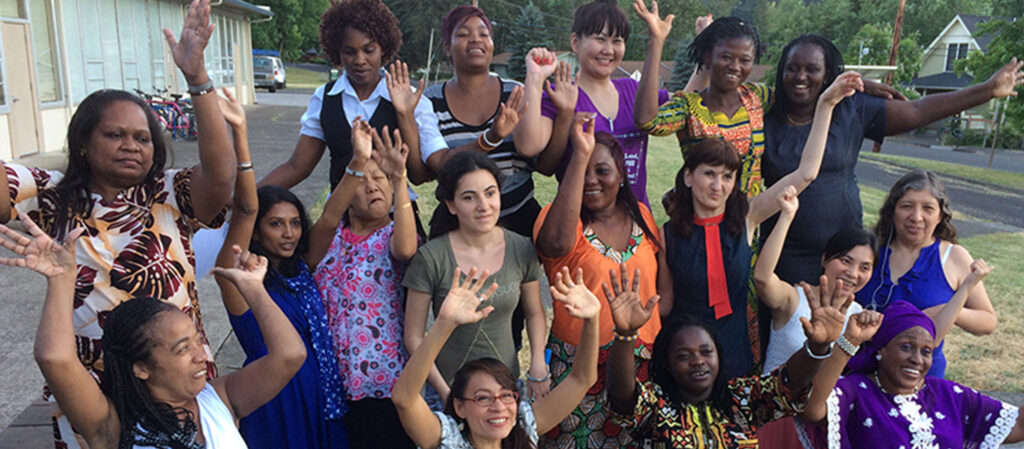With the COVID pandemic affecting everyone's lives around the world, MIUSA convened two calls to hear from women leaders with disabilities who attended our Women’s Institute on Leadership and Disability (WILD) and who represent 89 countries globally.
We learned from our WILD leaders what efforts are being done to protect and ensure the health and safety of women with disabilities, as well as what discrimination and challenges they are still facing. Many of the recommendations focused on access to all information related to COVID-19 response efforts. This means ensuring formats such as braille, audio and sign language are being used to share critical information about treatments, emergency food supplies, medical equipment, safety measures, testing, and economic aid. Another major issue was heightened domestic violence women with disabilities have been experiencing during lockdown, and the need to ensure access to reporting through hotlines as well as mental health and other support services.
To ensure that the messages were heard, we invited Carrie Hessler, President of the InterAction Board, Kavita Ramdas, head of the women's rights program at Open Society Foundations, and Cassandra Atlas and Divya Sooryakumar from MADRE, an international women’s human rights organization. Our guests pledged their commitment to share messages with other organizations and funders, and provided information about funding and other opportunities WILD women could access for support.
The call mainly emphasized the need for international development and humanitarian organizations and governments to listen to and work with women leaders with disabilities in all COVID-19 response efforts. And, going beyond partnerships, the need for policy change, especially at the donor level, to ensure that inclusion of women with disabilities becomes more mainstream and an integral part of everyone’s work.
WILD women are already forming partnerships and working to implement many of the recommendations they put forward. Some reported they are serving on national COVID-19 response committees and task forces in their countries. WILD women leaders are ready and willing to partner with more organizations to have an even greater impact.
MIUSA continues to connect disabled women leaders to opportunities with development organizations and funders. In July, there will be another call sharing information from the WILD women and developing strategies to be sure that their recommendations are implemented.
The calls were conducted in English with simultaneous translation provided into Spanish, American Sign Language and international sign, as well as captions. This activity was made possible through the generous support of the Channel Foundation.





